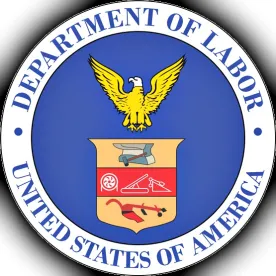On June 27, 2017, the U.S. Department of Labor (DOL) announced that it would again issue Opinion Letters to assist employers and employees in interpreting the Fair Labor Standards Act (FLSA) and the Family and Medical Leave Act (FMLA). After nearly ten months, DOL issued its first three Opinion Letters on April 12, 2018. The letters provide clarity to employers regarding the compensability of brief intermittent leave breaks and travel time and which lump sum payments made to employees can be garnished for child support.
Travel Time
The FLSA does not require employers to compensate non-exempt employees for travel time that occurs outside of their home community “outside of regular working hours as a passenger on an airplane, train, boat, bus, or automobile.” 29 C.F.R. § 785.39. Time spent traveling during regular working hours must be paid. For employees that do not work a fixed or consistent schedule, the DOL explained that employers can determine such employee’s “regular working hours” using one of the following two methods:
-
Review the employee’s time records during the most recent month of regular employment and, if the records reveal typical work hours, use those hours moving forward. If there are no typical working hours, the employer may use the average start and end times for the employee’s workdays; or
-
Negotiate and agree with the employee or the employee’s representative to set the employee’s regular working hours.
The DOL made clear that there may be other ways to determine regular working hours; however, if an employer uses one of the two methods set forth above, the DOL Wage and Hour Division will not find a violation.
Intermittent FMLA Breaks for Non-Exempt Employees
The FLSA requires that breaks of “up to 20 minutes” be paid. However, the DOL clarified that this general rule is in place because short breaks offered by an employer to their workforce are for the benefit of the employer (e.g., if the employee receives breaks they are likely to be more efficient and focused while working). The DOL explained that short, intermittent FMLA breaks, even if less than 20 minutes, are different because they are given to accommodate the employee’s serious health condition and predominately benefit the employee. In addition, employees are not entitled to paid breaks or leave under the FMLA. For these reasons, intermittent FMLA breaks to accommodate an employee’s serious health condition are not compensable.
Garnishments
Title III of the Consumer Credit Protection Act (CCPA) limits the amount that may be garnished from a person’s earnings. The DOL determined that, out of a list of eighteen different lump sum payments, only one is not covered by the limits set forth by the CCPA – buy backs of company shares. Certain portions of insurance settlements for wrongful termination and workers’ compensation also do not qualify as earnings protected by the statute. On the other hand, commissions, discretionary and nondiscretionary bonuses, productivity or performance bonuses, profit sharing, referral or sign-on bonuses, moving or relocation incentive payments, attendance awards, safety awards, cash service awards, retroactive merit increases, payment for working during a holiday, termination pay and severance pay are covered by the CCPA and subject to CCPA limits.
Despite the DOL’s guidance, employers should keep in mind that some state laws may differ. For example, Wisconsin law requires employers to compensate employees for time spent traveling away from their home community, even if the travel occurs outside of regular business hours. Wisconsin courts have not yet opined whether employee intermittent family and medical leave during the work day that is less than 30 minutes must be compensated under the Wisconsin wage and hour laws.



 />i
/>i

